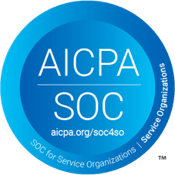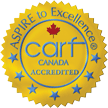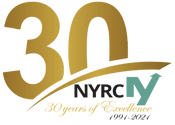Returning to work after an injury or illness can be a challenging process, both for employees and employers.
For many organizations, ensuring a safe, efficient, and sustainable return to work (RTW) is a top priority. Functional Ability Evaluations (FAEs) play a crucial role in supporting this process, providing the insights needed to make informed decisions and create effective RTW plans.
At NYRC, we understand the importance of balancing the needs of employers and employees in crafting RTW programs that work. FAEs are a cornerstone of this effort, offering objective and actionable data to guide decisions. Here’s how they contribute to successful RTW outcomes.
What Are Functional Ability Evaluations?
A Functional Ability Evaluation (FAE) assesses an individual’s physical and, in some cases, cognitive abilities to perform work-related tasks. Conducted by qualified healthcare professionals, FAEs evaluate factors such as:
- Strength and endurance
- Range of motion
- Coordination and dexterity
- Capacity to lift, carry, push, or pull
- Cognitive and emotional resilience (if applicable to the job)
These assessments provide an in-depth understanding of an individual’s current capabilities and any limitations resulting from their injury or illness.
How FAEs Support Return-to-Work Programs
1. Ensuring Employee Safety
Safety is paramount when facilitating a return to work. An FAE identifies an employee’s physical and cognitive limitations, ensuring that they are not placed in a role that could exacerbate their condition or lead to re-injury. By matching an employee’s abilities to their job requirements, FAEs help create a safer work environment.
2. Informing Customized RTW Plans
No two injuries or illnesses are the same, and neither are the paths to recovery. FAEs provide the detailed information needed to develop personalized RTW plans that accommodate an employee’s specific limitations and strengths.
For example, an FAE might recommend:
- Gradual reintegration through modified duties
- Adjusted work hours or shifts
- Ergonomic adjustments to the workspace
These accommodations not only support recovery but also demonstrate an employer’s commitment to employee well-being.
3. Promoting Open Communication
FAEs foster transparency between employees, employers, and healthcare providers. By providing objective data about an employee’s abilities, these evaluations help set realistic expectations and facilitate productive conversations about what is feasible in a return-to-work context. This clarity builds trust and reduces the risk of misunderstandings.
4. Reducing Costs and Improving Efficiency
Prolonged absences can be costly for both employers and employees. By expediting the RTW process and ensuring employees are matched to appropriate roles, FAEs help reduce the duration of disability claims and associated costs. Additionally, a well-structured RTW program can improve workplace productivity and morale.
5. Supporting Legal and Compliance Requirements
Employers have a duty to accommodate employees returning from injury or illness, as mandated by Canadian employment and human rights laws. FAEs provide the documentation needed to demonstrate due diligence in meeting these obligations. This objective evidence can also help resolve disputes related to RTW accommodations or disability claims.
Case Study: FAEs in Action
Consider the example of a warehouse worker recovering from a back injury. Following an FAE, it is determined that the employee can lift up to 10 kilograms but should avoid repetitive bending.
With this information, the employer adjusts the worker’s duties to include inventory management and quality checks instead of heavy lifting. Over time, the employee’s abilities are reassessed, allowing for a gradual return to their full duties.
This targeted approach benefits everyone involved:
- The employee feels supported and empowered in their recovery.
- The employer retains a valued team member and minimizes downtime.
- The healthcare provider tracks progress and adjusts recommendations as needed.
Why Choose NYRC for Functional Ability Evaluations?
At NYRC, we specialize in delivering comprehensive, objective, and timely FAEs that support successful RTW outcomes. Our experienced team of professionals works closely with employers, employees, and insurers to ensure:
- Accurate assessments tailored to specific job demands
- Clear and actionable recommendations
- Ongoing support throughout the RTW process
By choosing NYRC, you gain a trusted partner committed to creating safer workplaces and fostering positive recovery experiences.
Looking Ahead: The Future of RTW Programs
As workplaces continue to evolve, so too must the strategies that support injured or ill employees. FAEs will remain a vital tool in bridging the gap between recovery and reintegration, enabling employers to prioritize both productivity and well-being.
In 2025 and beyond, organizations that invest in proactive, evidence-based RTW programs will set themselves apart as leaders in workplace health and safety.
At NYRC, we’re here to help you navigate the complexities of disability management and return-to-work planning.



